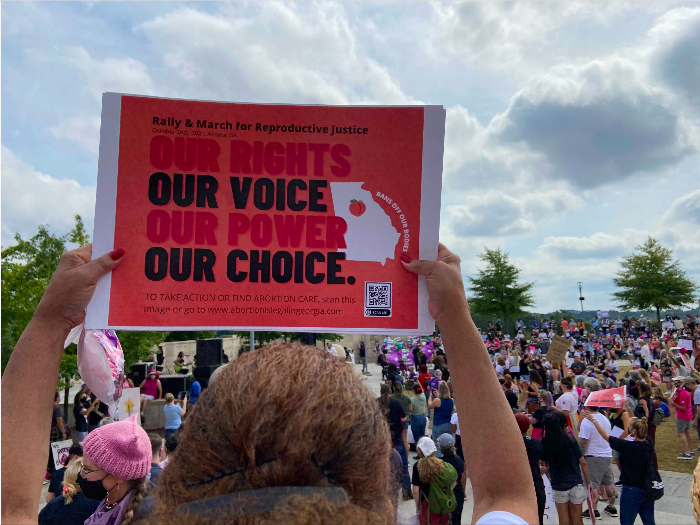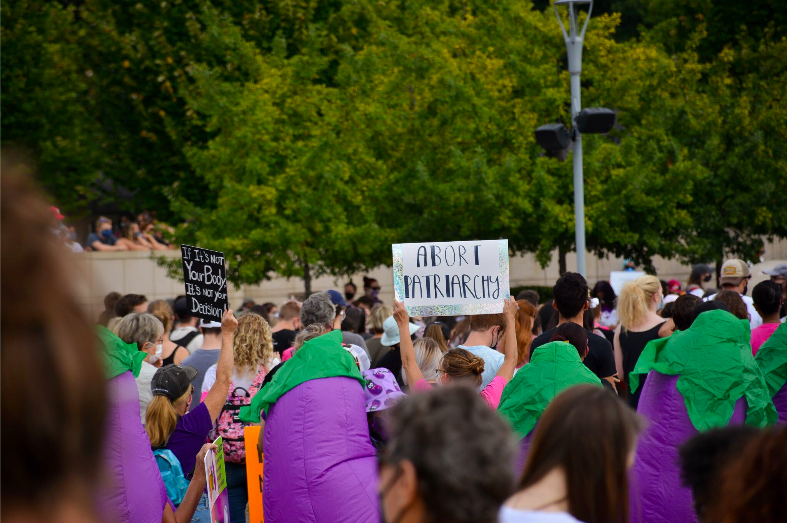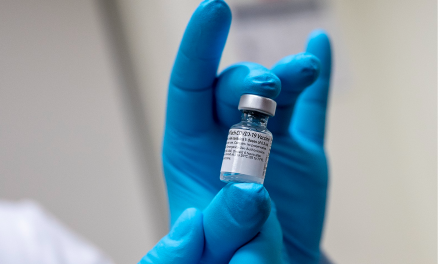Emory students joined protesters in front of the Georgia Capitol on Oct. 2 for the Rally and March for Reproductive Justice that called for safe and affordable access to abortion and the blockage of mounting legislation to limit abortion rights.
The event was part of a national movement that drew thousands of people across the U.S. on Saturday and reacted to Texas’s controversial new law, SB 8, which banned abortion after six weeks of pregnancy beginning Sept. 1. The law allows private citizens to sue anyone who receives, performs or helps someone to get an abortion. Pro-choice advocates were upset when the Supreme Court declined to block the “bounty-hunter” style of enforcement, citing that only private citizens have a civil right to action.
Madeleine Bloomer (23Ox) said she attended the march to protest SB 8, which she considers a life-endangering bill.
“If we look at even just the data surrounding abortions, legalizing abortions actually ends up saving more lives than criminalizing them,” Bloomer said. “Making abortions illegal doesn’t stop abortions from happening; It just means they’re more dangerous.”
While some Emory students attended the march independently, clubs such as The Oxford Leftist Coalition and The Oxford Young Democrats organized groups of students to attend the march together.
Sirui Li (23Ox), who registered with about 30 other students to get a ride to the march from the Oxford Young Democrats, said that while abortion procedures should be more widely accesible, she wants to see other strategies implemented to prevent unwanted pregnancies.
“We need to think about why people end up needing an abortion,” Li said. “It’s very important to have sex education and also fight against rape culture.”
Before the march, artists and speakers shared personal stories about abortion and gender identity, sexual assault, trauma and reproductive care. Li believed that the protest helped to destigmatize current views on abortion.

Emory students joined protestors at the Georgia Capitol on Oct. 2 to protest Texas’ new anti-abortion law SB 8. (Uma Shenai)
After a year of virtual activities, Oxford Young Democrats President Luxe Langmade (22Ox) said the in-person protest provided an opportunity for the club to rally around a shared issue.
“Trying to bring back the club to an in person experience, I really wanted to highlight activism again and show that Young Dems is an activist club and that we’re trying to promote activism on campus and make it accessible to students” Langmade said.
Oxford Young Democrats held a poster-making workshop before the protest, created student carpools and advised drivers on routes to the march. Langmade said that they are also hoping to partner with Planned Parenthood later in the semester to continue their work in reproductive rights activism.
Michelle Dai (22Ox), co-president of the Oxford Leftist Coalition, said that she hoped the march would provide a more diverse and intersectional focus on reproductive issues.
“Reproductive justice kind of entails equal access to reproductive rights,” Dai said. “A lot of communities of color and queer people don’t even have the access to the healthcare centers to abortions. They don’t even have the choice to make.”
Dai said she believes that more health care centers should be widely available to marginalized communities and that the conversation surrounding reproductive justice should include everyone, regardless of gender, race or sexual orientation.
Bloomer, the secretary and phone banking coordinator for the Oxford Young Democrats, noted that the lack of access to reproductive care and abortion is only a small part of the problem.
“A lot of this does come down to access to healthcare, period,” Bloomer said. “I am for universal health care, but that’s maybe bigger than just reproductive justice. I think that any government assistance for health care should include reproductive healthcare.”





